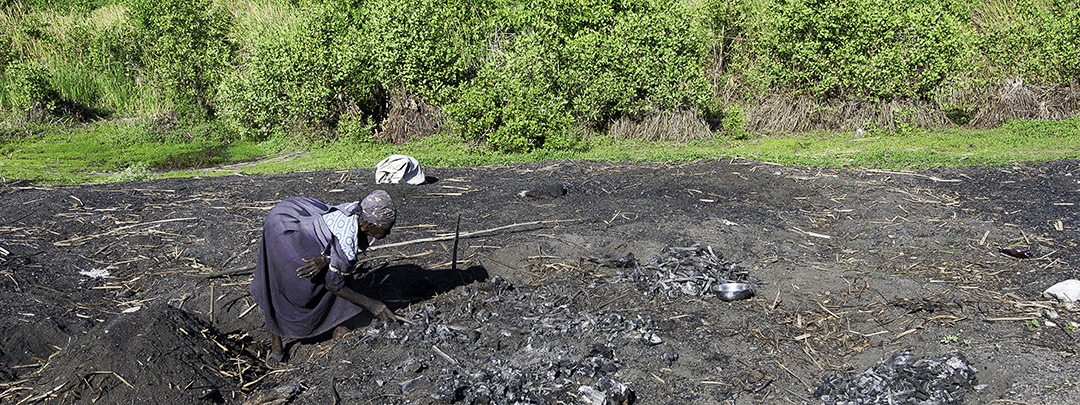
Livelihoods
Financing the Unbanked: How Community Savings Groups Can Create Pathways for Legal Artisanal Gold in Burkina Faso
2023
|
IMPACT
Kady Seguin, Victoria Reichel, Raphael Deberdt
This paper explores the connections between financial inclusion, formalization of artisanal miners, and illicit trade. The research demonstrates why financial inclusion is a crucial component…
Effectiveness of Participatory Monitoring and Evaluation on Achievement of Community-Based Water Projects in Tanzania
2020
|
Applied Water Science
S. A. Mgoba and S. J. Kabote
The Government of Tanzania is struggling to implement water projects throughout the country to ensure that 90% of the population has access to clean and…
Delivering the Promise of the Sendai Framework for Disaster Risk Reduction in Fragile and Conflict-Affected Contexts (FCAC): A Case Study of the NGO GOAL's Response to the Syria Conflict
2021
|
Progress in Disaster
Sonny S. Patel, Bernard McCaul, Gabriela Cáceres, Laura E.R. Peters, Ronak B. Patel, and Aaron Clark-Ginsberg
The Sendai Framework for Disaster Risk Reduction (SFDRR) has helped to reduce global disaster risk, but there has been a lack of progress in disaster…
The (Im)possibilities of Disaster Risk Reduction in the Context of High-Intensity Conflict: The Case of Afghanistan
2020
|
Environmental Hazards
Rodrigo Mena and Dorothea Hilhorst
Conflict aggravates disaster risk and impact through increased vulnerability and weakened response capacities. Disaster risk reduction (DRR) and disaster governance are needed – but often…
A Hippo in the Room: Predicting the Persistence and Dispersion of an Invasive Mega-Vertebrate in Colombia, South America
2021
|
Biological Conservation
Nataly Castelblanco-Martínez, Rafael A. Moreno-Arias, Josefa A. Velasco, Jorge W. Moreno-Bernal, Sebastián Restrepo, Elkin A. Noguera-Urbano, María P. Baptiste, Lina M. García-Loaiza, and Germán Jiménez
Biological invasions are a big concern due to their potential to impact ecosystems, as well as local people. The hippo Hippopotamus amphibius, native to Africa,…
Satellite Imagery in Conflict-Affected Areas: How Technology Can Support WFP Emergency Response
2020
|
World Food Programme
Laure Boudinand and Amadou Ibrahim
The past decade has witnessed a boom in the availability of satellite data whether from established space agencies or from the private sector. Unique in…
Climate Change, Food, and Nutrition Policies in Uganda: Are They Gender- and Nutrition-Sensitive?
2020
|
CGIAR
Patricia Ahuro Bamanyaki
This brief draws attention to some gaps in the mainstreaming of gender and nutrition in climate change, and food and nutrition-related policy documents, which may…
The Dark Side of Environmental Peacebuilding
2020
|
World Development
Tobias Ide
Environmental peacebuilding refers to efforts aimed at building more peaceful relations through environmental cooperation, natural resource management, climate change adaptation and disaster risk reduction. It…
Leveraging Co-benefits between Gender Equality and Climate Action for Sustainable Development: Mainstreaming Gender Considerations in Climate Change Projects
2016
|
UN Women
In September 2015, world leaders from 193 nations adopted the 2030 Agenda for Sustainable Development at the United Nations General Assembly. While some have hailed…
Participatory Research Methodologies: Development and Post-Conflict Disaster/Conflict Reconstruction
2010
|
Ashgate Publishing
Alpaslan Ozerdem and Richard Bowd
Participatory research methodologies have been used since the 1970s as a tool to garner accurate information about communities in which development practitioners operate. Their usefulness…
Food Security and Conflict: Empirical Challenges and Future Opportunities for Research and Policy Making on Food Security and Conflict
2018
|
World Development
Charles P. Martin-Shields and Wolfgang Stojetz
During the previous decade there has been an increased focus on the role of food security in conflict processes, both in the academic and policy…
Food Security, Sustaining Peace and Gender Equality: Conceptual Framework and Future Directions
2017
|
Food and Agriculture Organization of the UN
The main objective of this study is to generate knowledge and make meaningful, evidence-based and actionable recommendations to governments and other stakeholders, particularly international organizations…
"We Have No Voice for That": Land Rights, Power, and Gender in Rural Sierra Leone
2015
|
Journal of Human Rights
Gearoid Millar
Much attention has recently focused on the lease of land throughout the global south to nations and corporations in the global north. It is argued…
Nexus Meets Crisis: A Review of Conflict, Natural Resources and the Humanitarian Response in Darfur with Reference to the Water Energy Food Nexus
2015
|
International Journal of Water Resources Development
Brendan Bromwich
Darfur has been widely used as a case study by both those arguing for causality between environmental scarcity and war and those disputing it. This…
Fighting Windmills in Eastern Congo? The Ambiguous Impact of the 'Conflict Minerals' Movement
2015
|
The Extractive Industries and Society
Ben Radley and Christoph Vogel
The artisanal and small-scale mining (ASM) sector in the Eastern Democratic Republic of the Congo (DRC) is currently undergoing rapid reform of its governance structure…
Integrating Climate Change into Peacebuilding
2014
|
Climatic Change
Richard Matthew
Peacebuilding countries are concentrated in areas of heightened vulnerability to climate change impacts, and almost certainly lack the capacity to manage these impacts. In spite…
National Security and the Accelerating Risks of Climate Change
2014
|
CNA Military Advisory Board
This report re-examines the impact of climate change on U.S. national security in the context of a more informed, but more complex and integrated world. In the…